Three Lawyers, Two General Counsel, One Focus: Diversity and Inclusion
Maaike de Bie strives to help more women find their wings at Great Britain's easyJet. Cheryl Foy is pushing for more women general counsel in Canada.…
February 28, 2020 at 08:00 AM
12 minute read
 CC-March-Cover-Story-Lead-Art
CC-March-Cover-Story-Lead-Art
Maaike de Bie strives to help more women find their wings at Great Britain's easyJet. Cheryl Foy is pushing for more women general counsel in Canada. Aviva Will has found a way to press for gender equity at U.S. law firms. Nimesh Patel in the U.S. and Stephanie Boyce in the U.K. are working on goals to increase the law profession's diversity and inclusion in all areas, including social mobility.
In-house counsel, outside counsel, corporate investment expert, professional association executive—all lawyers and all part of a global corporate movement toward more equality in the law. They are working in different ways, with different companies and organizations, in different countries, in different parts of the profession. But all are focused on the same grand goal—diversity and inclusion.
Here are five lawyers who are making a difference:
Maaike De Bie
De Bie started her legal career in private practice in New York and moved to England about 20 years ago. She has served in several senior in-house legal roles, including group general counsel of Royal Mail and now group general counsel of easyJet, based in London.
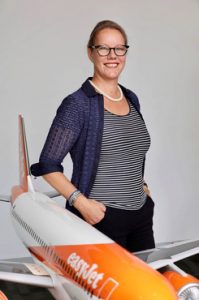 Maaike de Bie, Group General Counsel and Company Secretary of easyJet in London.
Maaike de Bie, Group General Counsel and Company Secretary of easyJet in London.De Bie recalls, "As a young lawyer, we had females making partnerships and thought, 'Wonderful, the glass ceiling has been broken and now we will see big movement and better representation of women at the partnership level!' But it didn't happen. The diversity issues of today are disappointingly still very similar to those that were there 20 to 25 years ago."
She believes not enough movement toward diversity has occurred because society still has not addressed the root causes. "I think there is a lot of unconscious bias in the legal profession, the way lawyers are hired and selected [for partnerships]," she says.
She concedes it is a complex problem with no simple answer. "It's the whole machinery, not just one thing, and it's embedded at various levels."
She is part of a group of U.K. counsel who are trying to address the issue with a younger generation of lawyers, "rather than leaving it with the top managers." The group wants the young lawyers to become part of the solution.
"The law is not a very open profession," De Bie complains, except to the privileged. In the U.K., they cite the lack of "social mobility," a term not used much in the U.S. though "there is plenty of evidence it applies in the U.S. as well," she says. "It really relates to your background."
In the U.K., De Bie explains, there is a feeling that one must go to special private, not public, schools and then to prestigious law schools. "It's the same issue in the U.S.," she says. "Unless you went to a prestige school, you probably won't get into Harvard. Unless you went to an Ivy League law school, you probably won't become a judge on the Supreme Court."
As easyJet's diversity and inclusion program, the company has been pushing to raise its percentage of female pilots from 6% in 2015 to 20% this year. De Bie says the program is called the Amy Johnson Flying Initiative, in honor of a British pioneer female aviator, who died during World War II while ferrying a new plane from a factory to a Royal Air Force base.
"The diversity and inclusion issues we are facing are not jurisdictional or country-specific," she says. "They are inherent in our Western culture, and that's why they are so hard to resolve."
Aviva Will
Will, co-chief operating officer of the litigation funding firm Burford Capital, is trying a creative approach to level the legal playing field for women. She founded the Equity Project, an initiative to address gender imbalance in the legal profession. Prior to joining Burford in 2010, Will was a senior litigation manager and assistant general counsel at Time Warner Inc.
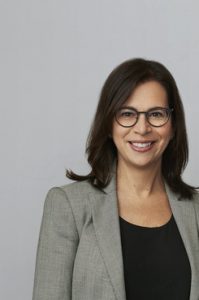 Aviva Will, founder of the Equity Project and co-chief operating officer at Burford Capital in NYC.
Aviva Will, founder of the Equity Project and co-chief operating officer at Burford Capital in NYC.Will says, "As a woman who was an in-house counsel, I think pushing law firms to put women in leadership roles on your cases is a sure-fire way to move the needle." She says she discovered that less than 5% of the thousands of commercial matters brought to Burford in the company's first nine years were led by women lawyers. "It struck me that that was nuts," she says.
Will wasn't seeing any gender programs out there helping to close the gap. "Then came the 'aha' moment," she says. "It's all about the money. Law firms are businesses, and if you can focus on the money, we can use Burford's capital as a tool to generate business for women lawyers."
Thus was born the international Equity Project. Launched in 2018 in New York City and since expanded to London and Paris, it seeks to change gender imbalance in the profession. The initiative set up a $50 million pool of capital earmarked for financing commercial litigation and arbitration matters led by women.
It provides an economic incentive for firms to put women in charge of large complex litigation, which often involves corporations and their in-house counsel.
"We're off to a great start," Will says, although she isn't yet releasing how much of the money is committed so far. "We just held our first full-fledge boot camp. It was invitation-only to 32 women who were mostly junior partners at big law firms. Every single one of them came."
How will she measure the project's success?
"In two ways," she says. "First if we see more women taking funding and getting opportunities to litigate cases. And, hopefully, we will be able to compare the results we get with this pool of capital with the rest of Burford's investment pool. I'd love to be able to tell you in five years that these cases came in under budget and generated more profit for Burford."
Her ultimate personal goal, though, is loftier. "If we can create a lot of women rainmakers and they are promoted, ultimately we will shift the culture in those law firms," she says.
Stephanie Boyce
Boyce, deputy vice president of the Law Society of England and Wales, based in London, sees the U.K.'s diversity movement from a slightly different angle. She says her professional association is committed to initiatives for equality, diversity and inclusion in the legal profession.
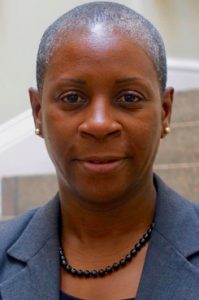 I. Stephanie Boyce, Deputy Vice President of the The Law Society in London.
I. Stephanie Boyce, Deputy Vice President of the The Law Society in London.The Society has created four divisions to represent groups that still face discrimination today: Ethnic Minority Lawyers, LGBT+ Lawyers, Women Lawyers, and Lawyers with Disabilities. Each division holds one to three seats on the Law Society's 100-member governing council.
Boyce also believes general counsel have a key role to play in achieving diversity. "As the most senior lawyer in the business and the holder of the legal purse, general counsel are well-positioned to ensure that external firms and those they intend to work with are promoting and maintaining diversity and inclusion," she says.
The general counsel are doing their part. Last year, a group of leading general counsels in the U.K. signed an open letter saying they will only do business with law firms that commit to diversity and inclusion, similar to a letter signed by general counsel in the U.S.
"If we are to become a profession of true equality of opportunity," Boyce says, "then it's right that those who are in a position to do so must be the drivers of the change we seek. And the message being sent out is the need to do better on diversity or miss out on work. That message remains the same both here and in the USA."
She says the Law Society's Royal Charter focuses on five key strands: gender, social mobility, disability and wellbeing, race and ethnicity, and LBGT+.
The Law Society's social mobility program also aims to increase access to the legal profession. It supports promising entrants from non-traditional backgrounds or those who face exceptional obstacles to qualification. It offers financial assistance on legal practice course fees, access to high-quality work experience and a professional mentor.
The Society also helped launch a Women in Law Pledge at its international Women in Law symposium last June. Boyce says signatories to the pledge vow to tackle discrimination, bullying and harassment in the workplace, the gender pay gap "and other inequalities that still affect women in law today, especially those facing multiple layers of discrimination."
She says the U.K.'s Sex Disqualification (Removal) Act marked its 100th anniversary in December. The law enabled women to become barristers, solicitors, jurors and magistrates. Despite that, Boyce says 50.2% of practicing solicitors are women while female lawyers make up only 30.1% of partners in private practice.
Nimesh Patel
Patel, global chief diversity and inclusion officer at Akin Gump Strauss Hauer & Feld in Washington, D.C., sees firsthand the differences between the U.S. efforts and other countries. Globally, he says, the U.K. probably has the closest view of diversity and inclusion to the U.S. stance.
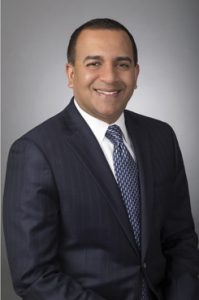 Nimesh Patel, chief diversity and inclusion officer at Akin Gump in Washington D.C.
Nimesh Patel, chief diversity and inclusion officer at Akin Gump in Washington D.C.Patel says a common focus globally includes gender and LGBTQ issues, as well as race and ethnicity. With London being home to Akin Gump's third-largest offices, he visits there often.
"One important area of distinction is that of social mobility. It's an important focus in the U.K.," Patel notes, repeating the importance of private schools.
The U.K. collects and makes public diversity data from law firms. Patel gives that effort a mixed review. "They just combine all data, without a detailed analysis on partners, associates and such," he says. "The challenge is that there is so much that goes into a holistic view of partner compensation. We're still exploring how best to do a thoughtful analysis of where we are."
Akin Gump's diversity strategy includes four main goals: leadership engagement, recruiting and pipeline, professional development, and strategic partnerships. On the latter goal, he says, "Our [corporate] clients have become more and more interested in law firm diversity and inclusion efforts. So there has been more partnering with clients and with diversity-related organizations."
He sees general counsel taking a leading role in both countries. "I talk a fair amount with in-house counsel teams, and one thing that gives me optimism is not only their level of focus but the specific actions being taken across the board."
He says some general counsels give bonuses to law firms that excel in diversity and inclusion, while others withhold business from law firms found lacking. "We are certainly seeing that they are requiring diversity on the pitch team. And when year-end meetings with the firm have D&I in the conversation, it makes a huge difference at the firm."
Cheryl Foy
Foy, general counsel and university secretary of Ontario Tech University, is one of those general counsels who looks at a law firm's diversity. She says Canada, the U.S. and the U.K. are all facing similar issues, especially striving for more gender diversity and pay equity in the law profession.
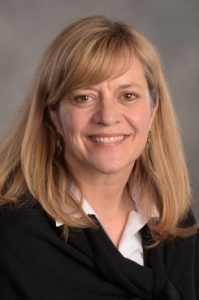 Cheryl Foy, general counsel and university secretary of Ontario Tech University in Ontario, Canada. She is founder and past president of Women General Counsel Canada.
Cheryl Foy, general counsel and university secretary of Ontario Tech University in Ontario, Canada. She is founder and past president of Women General Counsel Canada."I think, though, that I see evidence of more concrete action in Canada right now," she adds. General counsel can play a key part, Foy says. "Many of us feel that we are in a position to take a leadership role," she explains. "In some cases, we feel we are expected to and that we have to. If you are positioned at the leadership team table, you can have an impact."
It's not always easy. Attorneys in the U.S. and U.K. sometimes are straining to maintain the focus on diversity as political discourse has become polarized amid divisive leaders and issues. Not so in Canada, she says, under the leadership of a professed feminist, Prime Minister Justin Trudeau.
Foy notes that Trudeau is trying to balance the number of women in the judiciary and on national boards. She also cites an ongoing national reconciliation movement with Canada's indigenous people.
There is also group action. Foy is a signatory to Legal Leaders for Diversity, a group of Canadian general counsel who have declared their commitment for creating a more inclusive legal profession. In addition, she is founder and past president of Women General Counsel Canada, which supports women lawyers in general counsel and executive legal leadership positions.
So she hears many general counsel discussing ways to increase diversity. This includes pushing within their own companies as well as pressuring outside law firms. "There's an opportunity to raise awareness," Foy says. "Many of us are also corporate secretaries, so there's an opportunity there to bring light to the governance process and the board table."
This content has been archived. It is available through our partners, LexisNexis® and Bloomberg Law.
To view this content, please continue to their sites.
Not a Lexis Subscriber?
Subscribe Now
Not a Bloomberg Law Subscriber?
Subscribe Now
NOT FOR REPRINT
© 2025 ALM Global, LLC, All Rights Reserved. Request academic re-use from www.copyright.com. All other uses, submit a request to [email protected]. For more information visit Asset & Logo Licensing.
You Might Like
View All
'The Unheard of Superpower': How Women's Soft Skills Can Drive Success in Negotiations

Tales From the Trenches: What Outside Counsel Do That GCs Find Inexcusable

Venus Williams Tells WIPL Crowd: 'Living Your Dreams Should Be Easy'

The 2024 WIPL Awards: Law Firm Mentor and Mentee Collaboration
Law Firms Mentioned
Trending Stories
- 1Reviewing Judge Merchan's Unconditional Discharge
- 2With New Civil Jury Selection Rule, Litigants Should Carefully Weigh Waiver Risks
- 3Young Lawyers Become Old(er) Lawyers
- 4Caught In the In Between: A Legal Roadmap for the Sandwich Generation
- 5Top 10 Developments, Lessons, and Reminders of 2024
Who Got The Work
J. Brugh Lower of Gibbons has entered an appearance for industrial equipment supplier Devco Corporation in a pending trademark infringement lawsuit. The suit, accusing the defendant of selling knock-off Graco products, was filed Dec. 18 in New Jersey District Court by Rivkin Radler on behalf of Graco Inc. and Graco Minnesota. The case, assigned to U.S. District Judge Zahid N. Quraishi, is 3:24-cv-11294, Graco Inc. et al v. Devco Corporation.
Who Got The Work
Rebecca Maller-Stein and Kent A. Yalowitz of Arnold & Porter Kaye Scholer have entered their appearances for Hanaco Venture Capital and its executives, Lior Prosor and David Frankel, in a pending securities lawsuit. The action, filed on Dec. 24 in New York Southern District Court by Zell, Aron & Co. on behalf of Goldeneye Advisors, accuses the defendants of negligently and fraudulently managing the plaintiff's $1 million investment. The case, assigned to U.S. District Judge Vernon S. Broderick, is 1:24-cv-09918, Goldeneye Advisors, LLC v. Hanaco Venture Capital, Ltd. et al.
Who Got The Work
Attorneys from A&O Shearman has stepped in as defense counsel for Toronto-Dominion Bank and other defendants in a pending securities class action. The suit, filed Dec. 11 in New York Southern District Court by Bleichmar Fonti & Auld, accuses the defendants of concealing the bank's 'pervasive' deficiencies in regards to its compliance with the Bank Secrecy Act and the quality of its anti-money laundering controls. The case, assigned to U.S. District Judge Arun Subramanian, is 1:24-cv-09445, Gonzalez v. The Toronto-Dominion Bank et al.
Who Got The Work
Crown Castle International, a Pennsylvania company providing shared communications infrastructure, has turned to Luke D. Wolf of Gordon Rees Scully Mansukhani to fend off a pending breach-of-contract lawsuit. The court action, filed Nov. 25 in Michigan Eastern District Court by Hooper Hathaway PC on behalf of The Town Residences LLC, accuses Crown Castle of failing to transfer approximately $30,000 in utility payments from T-Mobile in breach of a roof-top lease and assignment agreement. The case, assigned to U.S. District Judge Susan K. Declercq, is 2:24-cv-13131, The Town Residences LLC v. T-Mobile US, Inc. et al.
Who Got The Work
Wilfred P. Coronato and Daniel M. Schwartz of McCarter & English have stepped in as defense counsel to Electrolux Home Products Inc. in a pending product liability lawsuit. The court action, filed Nov. 26 in New York Eastern District Court by Poulos Lopiccolo PC and Nagel Rice LLP on behalf of David Stern, alleges that the defendant's refrigerators’ drawers and shelving repeatedly break and fall apart within months after purchase. The case, assigned to U.S. District Judge Joan M. Azrack, is 2:24-cv-08204, Stern v. Electrolux Home Products, Inc.
Featured Firms
Law Offices of Gary Martin Hays & Associates, P.C.
(470) 294-1674
Law Offices of Mark E. Salomone
(857) 444-6468
Smith & Hassler
(713) 739-1250






